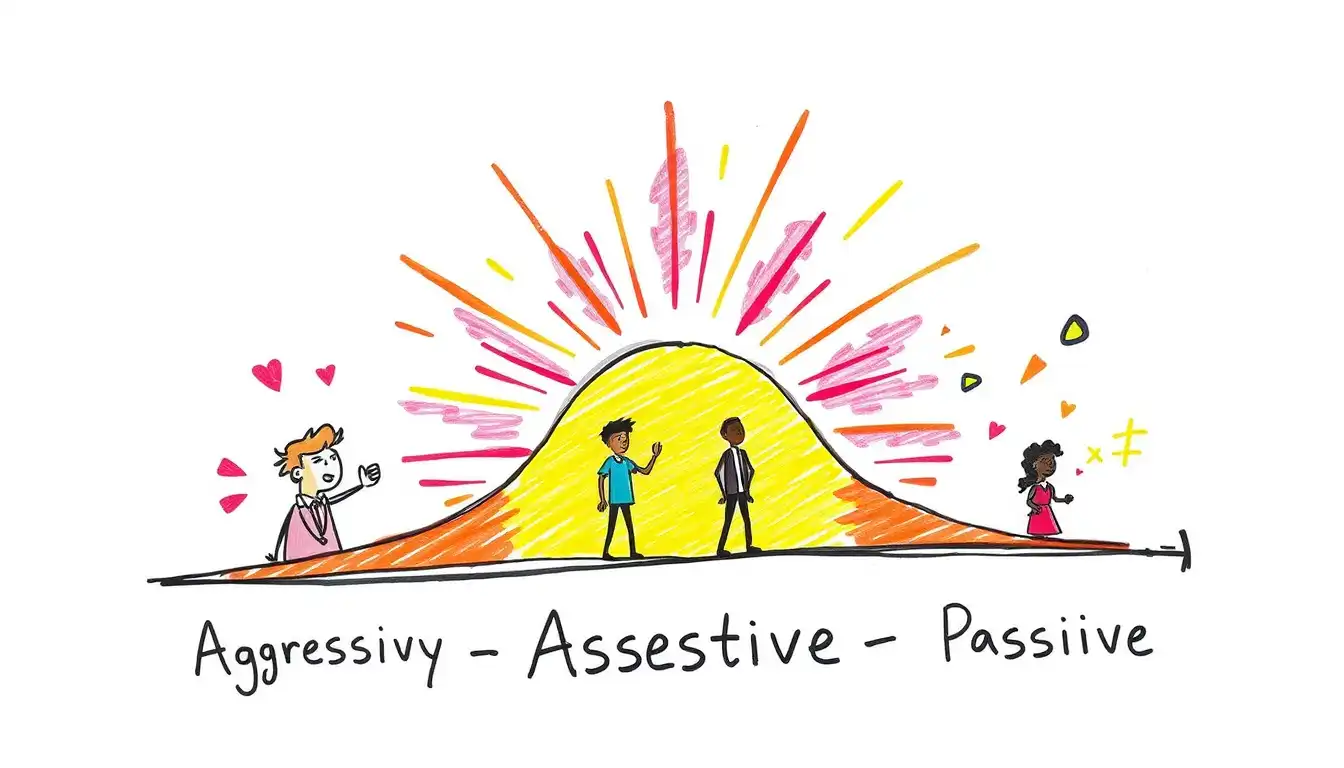Common Signs of Overly Aggressive Behavior
When someone exhibits overly aggressive behavior, they may often resort to intimidation tactics to get their way. This can be seen in their tendency to raise their voice, use threatening language, or employ physical gestures to assert dominance in a conversation or interaction. Individuals displaying this behavior might also show a lack of empathy towards others’ feelings and perspectives, focusing solely on their own needs and desires without considering the impact on those around them.
Another sign of overly aggressive behavior is the constant need to control situations and people. These individuals may exhibit a high level of impatience and irritability when things do not go their way, leading to outbursts of anger or frustration. Their communication style may be characterized by a dominating presence, often interrupting or talking over others to assert their opinions as the only valid ones in a conversation.
Impact of Aggressive Assertiveness on Relationships
Aggressive assertiveness can have a detrimental impact on relationships, both personal and professional. The dominating and overpowering nature of aggressive behavior can lead to conflicts, misunderstandings, and breakdowns in communication, ultimately straining the bond between individuals. The aggressive individual may come across as intimidating, controlling, and disrespectful, making it difficult for others to feel heard, valued, or understood in the relationship. Over time, such dynamics can erode trust, breed resentment, and create an environment of tension and hostility.
In relationships where aggressive assertiveness is prevalent, there is a heightened risk of emotional and psychological harm. The constant power struggles, confrontations, and display of dominance can create a toxic dynamic that wears down the emotional well-being of all involved. The targeted individuals may feel belittled, invalidated, or even fearful, leading to a breakdown in their self-esteem and confidence. Furthermore, the aggressive individual may struggle to form genuine connections based on trust, empathy, and mutual respect, as their behavior often perpetuates a cycle of conflict and distance in relationships.
The Fine Line Between Confidence and Arrogance
Confidence is a trait admired by many for its ability to convey self-assurance and capability. It is manifested through a sense of belief in oneself and one’s abilities, often leading to positive outcomes in various areas of life. On the other hand, arrogance stems from an inflated sense of self-importance that can overshadow one’s interactions with others. It often manifests as a lack of regard for differing opinions and an overemphasis on one’s own superiority.
Navigating the fine line between confidence and arrogance requires self-awareness and humility. While confidence encourages growth and success, arrogance can hinder personal and professional relationships. It is essential to strike a balance between expressing self-assurance and respecting others’ perspectives. By recognizing the subtle cues that differentiate confidence from arrogance, individuals can cultivate a more harmonious and effective communication style.
How Aggressive Assertiveness Can Lead to Conflict
Aggressive assertiveness, when left unchecked, has the potential to escalate conflicts in various settings. Individuals who display such behavior often prioritize their own needs and desires above others, leading to a lack of consideration for differing perspectives and feelings. This can create tension and resentment among peers, colleagues, or loved ones, ultimately resulting in strained relationships and heightened levels of conflict.
Moreover, aggressive assertiveness tends to shut down open communication channels essential for resolving disagreements effectively. By dominating conversations, dismissing alternative viewpoints, and resorting to intimidating tactics to get their way, individuals displaying aggressive behavior hinder the possibility of finding mutually beneficial solutions. This aggressive approach can breed animosity and defensiveness in others, fueling conflicts rather than fostering understanding and compromise.
Understanding the Root Causes of Aggressive Behavior
Aggressive behavior can often stem from underlying feelings of insecurity and inadequacy. Individuals who struggle with low self-esteem may resort to aggression as a means of asserting dominance and control in their interactions with others. This behavior can be a defense mechanism to mask their own vulnerabilities and fears, leading to a cycle of aggression as a coping mechanism.
Additionally, past experiences of trauma or abuse can play a significant role in shaping aggressive behavior. Individuals who have been exposed to violence or aggression in their formative years may internalize these behaviors and perpetuate them in their own interactions. Traumatic experiences can trigger a fight-or-flight response, causing individuals to respond aggressively when they feel threatened or vulnerable.
Tips for Balancing Confidence and Respect
Developing a balance between confidence and respect is essential for effective communication and healthy relationships. One tip is to practice active listening during conversations by fully engaging with the speaker and showing empathy towards their perspective. This demonstrates respect for the other person’s thoughts and helps foster meaningful connections.
Another helpful tip is to be aware of your body language and tone of voice when communicating with others. Maintaining open and welcoming body posture, along with a calm and respectful tone, can convey confidence without coming across as aggressive or disrespectful. By being mindful of these non-verbal cues, you can effectively balance your confidence while still showing respect towards others.
• Practice active listening during conversations
• Engage with the speaker and show empathy towards their perspective
• Demonstrate respect for the other person’s thoughts
• Foster meaningful connections
• Be aware of your body language and tone of voice
• Maintain open and welcoming body posture
• Use a calm and respectful tone when communicating
• Convey confidence without being aggressive or disrespectful
The Psychological Effects of Aggressive Assertiveness
Aggressive assertiveness can have deep-rooted psychological effects on both the individual displaying such behavior and those on the receiving end. For the individual exhibiting aggressive behavior, it can create a sense of constant stress and heightened arousal, leading to feelings of anger, frustration, and even isolation. This persistent state of aggression can also negatively impact one’s mental well-being, causing increased levels of anxiety and difficulty in forming healthy relationships with others.
On the receiving end, interactions with overly aggressive individuals can leave lasting emotional scars, including feelings of powerlessness, fear, and diminished self-worth. Being subjected to aggressive behavior can trigger a range of psychological responses, such as heightened anxiety, emotional distress, and a sense of being constantly under threat. These psychological effects can have a detrimental impact on one’s overall mental health and may lead to long-term emotional trauma if not addressed appropriately.
Strategies for Managing Aggressive Tendencies
Identifying triggers that prompt aggressive responses is crucial in managing aggressive tendencies. By recognizing the situations or emotions that lead to outbursts, individuals can proactively work on implementing coping mechanisms. These may include deep breathing exercises, mindfulness practices, or removing oneself from triggering environments to de-escalate intense feelings before they escalate into aggression.
Engaging in regular self-reflection and seeking feedback from trusted individuals can also help in managing aggressive tendencies. By openly discussing past incidents and their underlying causes, individuals can gain insights into their behavioral patterns and actively work towards modifying their responses. Building self-awareness and practicing active listening are key steps in gradually changing ingrained aggressive tendencies.
Seeking Professional Help for Aggressive Behavior
If you find yourself struggling to control your aggressive tendencies and they are significantly impacting your relationships and daily life, seeking professional help may be the best course of action. A trained therapist or counselor can provide you with the tools and support needed to better understand the root causes of your aggressive behavior and learn healthier ways to cope and communicate.
Therapy can also help you explore any underlying emotions or past experiences that may be contributing to your aggression, allowing you to address these issues in a safe and supportive environment. Additionally, a mental health professional can work with you to develop personalized strategies and techniques for managing your aggressive tendencies and promoting more positive, respectful interactions with others.
Creating Healthy Boundaries in Assertive Communication
Assertive communication is a valuable skill that allows individuals to express their thoughts, opinions, and feelings in a clear and respectful manner. When practicing assertive communication, it is important to establish healthy boundaries to ensure that your needs are being met while also considering the feelings and boundaries of others. Setting boundaries can help prevent misunderstandings, conflicts, and resentment in relationships.
One effective way to create healthy boundaries in assertive communication is to clearly state your needs and expectations. Be direct and specific about what is important to you and what you are willing to tolerate. It is essential to communicate your boundaries in a firm yet respectful manner, ensuring that others understand and respect your limits. Remember that setting boundaries is not about control or manipulation but rather about expressing your needs assertively and fostering healthy communication dynamics.
What are some tips for balancing confidence and respect in assertive communication?
Some tips include being mindful of your tone and body language, actively listening to others, and being open to feedback and different perspectives.
How can aggressive assertiveness lead to conflict in relationships?
Aggressive assertiveness can lead to conflict in relationships by causing others to feel intimidated, unheard, or disrespected, leading to breakdowns in communication and trust.
When should someone seek professional help for aggressive behavior?
If aggressive behavior is causing significant distress in your relationships, work, or personal life, it may be beneficial to seek help from a therapist or counselor who can provide guidance and support.
What are some common signs of overly aggressive behavior?
Common signs include raising your voice, making personal attacks, interrupting others, and disregarding their feelings or opinions.
How can creating healthy boundaries in assertive communication improve relationships?
Creating healthy boundaries helps individuals communicate their needs and expectations clearly, while also respecting the boundaries of others, leading to healthier and more fulfilling relationships.






Leave a Reply